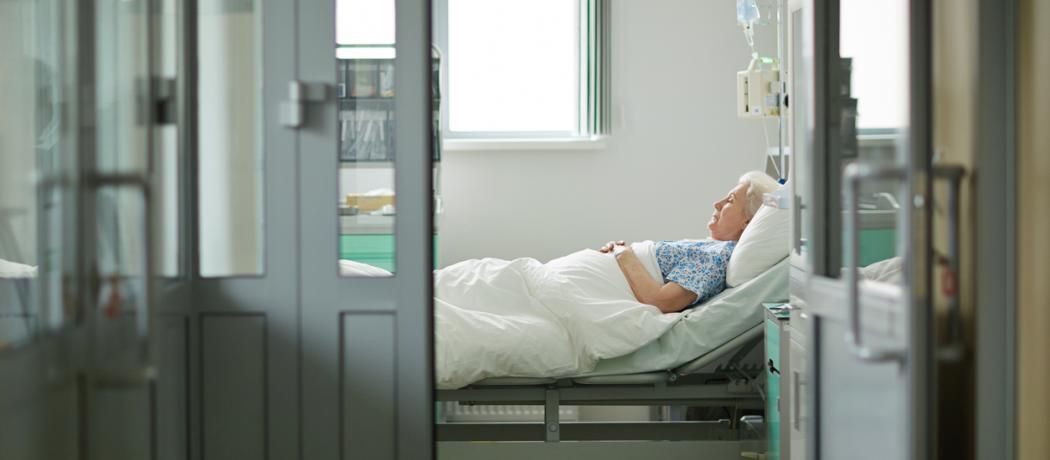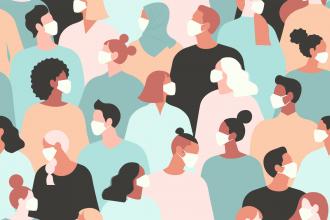I used to be a rural family physician; I retired completely from the profession less than 10 years ago. These days I spend a lot of time on the river thinking about fish and aquatic insects and not much about medicine. But recently my mother died, and I have been reflecting on how much has changed since I retired.
My mother was deaf mute, and so communication was never straightforward when she presented to the emergency room. My family phoned me on a Saturday night to tell me that my mom had suffered sudden onset, severe squeezing lower chest discomfort, an ambulance was called, and she was brought to hospital. My family was told my mom was experiencing severe hiatus hernia pain and was to be admitted for observation, which sounded a bit odd to me. My family was discouraged from coming in due to COVID-era concerns and they dutifully obliged. Over the next day or so, they were told my mother was being treated for diverticulosis and should be home in the next day or so, which seemed to make a little more sense to me as to why she was still in hospital.
On the fourth day, my family was told that my mother had suffered a massive heart attack that morning and likely would not survive. So my wife and I drove down for what would be the last visit we would ever make to see my mother. Fortunately, the usual COVID restrictions were relaxed and close family were permitted to visit my dying mom for short durations. There was no chair to sit on beside her bed so I sat on her walker and we communicated with sign language off and on until dark. Lights were turned off at 8 p.m. and I sat there in the dark for a few hours. My mother was relatively alert when she was awake, and when she was awake she complained of extreme tiredness and appeared to be in cardiogenic shock—sitting up partially in the bed, puffing away, swollen neck veins, swollen feet, and all the stuff we are taught in medical school. I asked my mom why she was in hospital, and she said she did not really know, but she did know that she was dying and would be joining my father shortly. Her braveness will haunt me until the end of my life, I am sure.
Being an ex-medical doctor and all that, I thought that it would be good to look at her medical chart and try to understand what had really gone on. My mother agreed that I could look at the chart, but she was not really interested in the details. So you can imagine my confusion when I was told that family members are no longer allowed to look at hospital medical records.
I was told that before I could review that chart I would have to fill out paperwork that would be sent to some sort of patient confidentiality screening committee, and that committee would determine whether I should be allowed to review the chart. I was told that the process usually took 4 to 6 weeks. So there I was, 2 feet away from the chart that my dying mother said I could review, and I was not allowed to look at it.
What a change from my doctoring days when patients and close family members were allowed to look at hospital chart information whenever the request was made, and I would gladly take the time to come to the hospital and review the chart with family if they wanted me to. I spotted a nurse and pleaded my case, and she sort of broke the rules to let me look over her shoulder at the chart while she sort of reviewed the chart with me, and began answering some of my questions—yes, they had done an ECG on admission, and yes, the automatic interpretation did say septal infarction on admission, and yes, cardiac enzymes were a bit up on admission. And yes, the admission diagnosis was hiatus hernia, and yes, no follow-up ECG or cardiac enzymes were done after admission until she went into her heart failure 4 days later.
Another rule now seems to be in effect: that everyone on the health care team—social worker, nurse, hospital administrator, etc.—must say “you have to call the family doctor for any information related to your mother.”
This was another profound change I found interesting and disturbing. When I was a practising physician, I appreciated the fact that nurses and social workers would often talk to my patients and their families about what was going on. It saved me time, and 90% of the time they could answer the questions that were being asked. So now we have a system where family can’t look at a chart without waiting up to 6 weeks, family can’t get information from nurses or other health care workers, and everything must be deferred to the family doctor.
I tried to call the family doc. Admittedly, I felt embarrassed because I would be family member number four trying to get information on my mother’s medical condition, and I knew that the doctor was likely having a very busy day. Interestingly, the phone message was simple, “this is Doctor X, I am not on call.” No phone number to call to find out who was on call, and no way to leave a message.
So this is the third thing I learned: the new system where everything is deferred to the patient’s doctor results in doctors having to find ways to protect themselves and not surprisingly that includes making it more difficult to actually connect.
I don’t really know what killed my mother; I am guessing that she had a heart attack on admission, the ECG changes and elevated cardiac enzymes were ignored for some reason, and she went on to die of cardiogenic shock. Meanwhile some family members still think she died of a hiatus hernia attack. My mom had a full life, and really was overdue to be in an assisted living place, but she did not want that and we all know that those kinds of places are few and far between these days, so I am OK with her dying at this time.
So that is the story of my mother’s death. I was thankful that I could see her during COVID times. I was saddened by the lack of privacy I had with my obviously dying mother (she was in a room with four other people). I was saddened by the fact that no nurse offered me a chair to sit in while I was at the bedside. I was sad that the nurse forgot that a bed pan was left under my mom, which was causing her discomfort, and that I had to suggest the nurse look to see if there was a bed pan there. I was saddened that I could not take a quick review of my mother’s chart. I was sad that my mother’s family doc was so busy we could not connect while we were there. I was sad that the health care system now defers all questions to the family doctor. There was a day when hospital staff would say that the medical doctor had too much power; I can’t help but think that these days the lawyers and accountants have too much power.
—Anonymous
This blog post has been peer reviewed by the BCMJ Editorial Board. It has been anonymized to protect the privacy of the parties involved.




That was the most touching, sad and telling blog....thank you....my deepest sympathy...